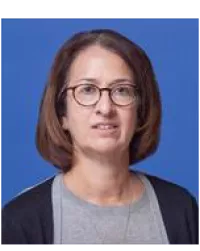Robert Baron
Robert Baron has had a distinguished career at UCSF and in the Department of Medicine. He graduated from Princeton University in anthropology and sociology, received a master’s degree in nutrition from the University of Wisconsin, Madison, and his medical degree from UCSF. He did his residency training in UCSF's Primary Care Internal Medicine Residency Program and joined the UCSF faculty and Department of Medicine in 1981.
He directed the Screening and Acute Care Clinic for eight years during the early years of the AIDS epidemic and founded the UCSF Weight Management Program. He directed the UCSF Primary Care Internal Medicine Residency from 1989 until 2006, training over 300 residents for primary care and general internal medicine careers. From 2000-2023, he served as associate dean for Continuing Medical Education at UCSF, leading UCSF's CME program of over 300 professional development activities per year. From 2006-2021, Bobby also served as associate dean for GME and designated institutional official for UCSF. He oversaw UCSF’s 92 ACGME-accredited residency and fellowship training programs, over 50 non-ACGME programs, and over 1600 trainees.
Bobby has led nationally recognized programs to enhance resident and fellow skills in quality and safety, to increase the diversity of residents and fellows, to increase interprofessional collaboration, and to create innovative programs in well-being. A practicing primary care general internist, he has been recognized as one of America's Top Doctors for 25 years and as one of the Outstanding Primary Care Physicians in the U.S. He has received numerous teaching and service awards including UCSF’s Distinguished Teacher Award, UCSF's Diversity Founders' Champion Award, the California Society of General Internal Medicine's Clinician Teacher of the Year Award and Senior Mentor of the Year Award, and the ACGME's Parker Palmer Courage to Lead Award. He has focused his scholarship on graduate and continuing medical education and on nutrition, preventive medicine, and chronic disease. He has published 69 peer-reviewed papers and 99 book chapters and reviews. Bobby continues to maintain his primary care practice, teach internal medicine residents, and lead primary care CME courses.

Douglas Bauer
Doug Bauer has been a clinician-investigator in the Division of General Internal Medicine at UCSF since 1992, where he maintains a general medicine practice (Mt Zion), teaches students, residents and junior faculty, and is active in clinical research. As an executive member of the San Francisco Coordinating Center, he directs the Endpoints and Medication Coding Groups. He currently serves as the Director of the CTSI-funded K Scholar Program which provides clinical and translational research training, mentoring, and funding to promising UCSF faculty from all schools and departments. Prior to the K program he started and directed the CTSI-funded Resident Research Training Program at UCSF. His own research interests include the etiology, diagnosis and treatment of osteoporosis and other skeletal disorders, clinical biomarkers, and thyroid dysfunction. Doug has been a standing member of the NIH Neurologic, Aging, and Musculoskeletal Epidemiology (NAME) Study Section, a member of the California Technology Assessment Forum, and a Trustee for the National Osteoporosis Foundation. He currently serves on the FDA Bone, Urologic and Reproductive Drug Advisory Committeel (BRUDAC).
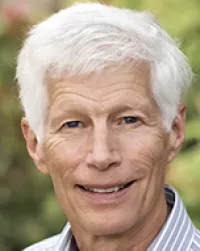
Maria Ekstrand
Maria Ekstrand came to UCSF in 1986 as a postdoctoral fellow in Health Psychology after receiving her PhD in Clinical Psychology at Auburn University. Inspired by her mentor, Tom Coates, she joined the newly funded Center for AIDS Prevention Studies (then known as “SAMHA”), where she has been designing, implementing, and evaluating behavior change interventions to reduce HIV stigma and improve engagement in care among vulnerable populations. While her initial research program focused on U.S. populations, she soon expanded this work to global health settings, where she has been mentoring and collaborating with postdoctoral fellows and junior faculty from Asia, Brazil, and Eastern Europe as part of the UCSF I-TAPS program. Through this experience, she fell in love with India, where she initially worked with colleagues in different NGO and government settings on both pilot projects and as PI or MPI of eight NIH-funded grants. In 2002, she began a collaboration with faculty at St. John’s National Academy of Health Sciences in Bangalore, where she received an honorary faculty appointment. This work led to an additional seven NIH-funded collaborative grants focusing on HIV prevention, mental health, HIV and cancer stigma, as well as mentorship of multiple young scientists, including nine who received the UC GloCal Health fellowship. She feels very fortunate to have been able to spend her career working on health challenges with brilliant and compassionate people around the world and helping to train the next generation of global health scientists. Although retiring from full-time work, Maria plans to return to UCSF on recall this fall on a part-time basis to finish up her ongoing projects and complete the mentoring of her current students.
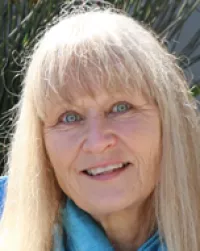
Sam Goldman
Sam Goldman received his medical degree from the University of Texas, Houston and trained in Preventive Medicine and Public Health at the University of California, Berkeley, where he also earned a Masters of Public Health in Environmental Health Science. He is a clinical professor in the Division of Occupational, Climate & Environmental Medicine and the Department of Neurology, and is a staff physician at the San Francisco VA Medical Center where he sees patients in the Environmental Medicine Clinic. He has published extensively on the environmental epidemiology of neurodegenerative diseases, focusing on the long-term neurological effects of exposure to pesticides, solvents, smoking and traumatic brain injury, and the interaction of these exposures with genetic susceptibility factors. Sam's work focuses on environmental risk factors for Parkinson’s disease and other neurodegenerative disorders. Among these are pesticides, solvents, smoking and traumatic brain injury, the microbiome, and the interaction of these factors with genetic susceptibility factors.
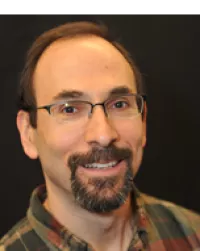
Frederick Hecht
Frederick (Rick) Hecht trained in Internal Medicine, with additional training in clinical research methods, biostatistics, and behavioral medicine. His research focus for many years was on HIV. He developed one of the largest cohorts in the world of persons followed from primary HIV (within six months of infection), the Options Project, in which clinical, behavioral, cardiovascular, and immunologic research questions were examined. In 2002, Rick became director of Research at the UCSF Osher Center for Integrative Medicine. His research is driven by the belief that modern medicine has made impressive advances in treating a range of health conditions, but that further advances for many of the most important health problems of our era, including obesity, diabetes, heart disease, and mental health issues require improved development and implementation of lifestyle and other non-pharmacologic approaches. An important goal of his research program is to rigorously test whether interventions for chronic health problems such as HIV, diabetes, obesity, and stress can be improved by incorporating mindfulness and/or yoga-based components. A current example is an NIH-funded study to test whether including training in mindful eating practices decreases eating in response to food cravings and enhances adherence to a nutritional plan in type 2 diabetes. He brings a focus on clinical research methodology to projects and is particularly interested in the use of innovative research methodology to strengthen the rigor of research on nonpharmacolgic health interventions, including factorial trials and Sequential Multiple Assignment Randomized Trials (SMARTs), and assessment of teacher factors in mindfulness programs to improve intervention fidelity.
In his role as director of the UCSF Osher Center Research Program, he played a key leadership role in building it into an internationally recognized integrative medicine research center that is distinguished by the application of innovative and rigorous research designs to studying mindfulness-based interventions, yoga, acupuncture, interoceptive awareness, and behavioral interventions. Rick served in a variety of leadership roles in HIV medicine and integrative health, including as board chair of the Academic Consortium for Integrative Medicine and Health. He has a strong commitment to mentoring and led UCSF’s highly successful Training Research in Integrative Medicine (TRIM) fellowship program since 2006 and served as a primary or main co-mentor for 12 NIH K awardees. He also served as PI or co-PI/project director for 31 grants, 19 of them from NIH, including leading three Program Project grants.
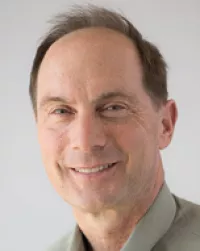
Kristen Hege
Kristen Hege is a specialist in blood cancers and other blood diseases. In research, she has a special interest in immune and gene therapies to treat cancer and HIV.
Kristen earned an undergraduate degree in biochemistry at Dartmouth College, graduating summa cum laude. She earned her medical degree at UCSF. She completed her medical residency at Brigham and Women's Hospital, a teaching affiliate of Harvard Medical School, followed by a fellowship in hematology and oncology at UCSF.
Kristen joined UCSF in 1996. She is also senior director of clinical research for the pharmaceutical company, Cell Genesys Inc.
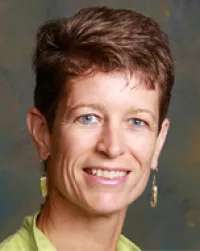
Patti Katz
Patti Katz is an internationally recognized leader in the areas of patient-centered health outcome measurement, development of patient-reported outcomes, and the association between behavioral factors such as exercise, stress, and trauma, and disease outcomes. She has authored close to 300 peer-reviewed publications as well as numerous review articles and book chapters. She served as the co-editor in chief of Arthritis Care and Research for six years and is currently the co-editor in chief of ACR Open Rheumatology. She has been an instrumental mentor to innumerable trainees both within and outside UCSF. In recognition of her many achievements, the ACR awarded her the Lifetime Achievement Award and the Excellence in Investigative Mentoring Award. She was designated a Master of the American College of Rheumatology/Association of Rheumatology Professionals. Lastly she received the Lawren H. Daltroy Award for Excellence in Health Communications in 2021.

Harry Lampiris
Harry Lampiris is retiring after 30 years of service at the SF VA. He was the chief of the Division of Infectious Diseases and during Covid he was “the face of the Infectious Disease service.”
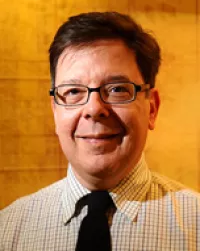
Thiennu Vu
Thiennu Vu received her M.D. and Ph.D. from the University of California, San Francisco in 1991 after completion of the Medical Scientist Training Program. She completed a Residency in Internal Medicine at the University of California, San Diego and a Fellowship in Pulmonary and Critical Care Medicine at UCSF. She was the principal investigator of a research program focusing on the molecular mechanisms of lung development and the biology of lung progenitor and stem cells from 2000 to 2016. Thiennu practices Pulmonary medicine at the UCSF Mt Zion Pulmonary clinic. She is a Pulmonologist who provides consultation and treatment for adults with lung diseases.
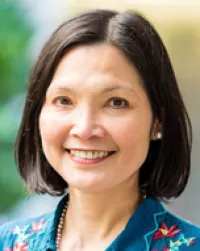
Leslie Zimmerman
Leslie Zimmerman semi-retired in Spring 2022 after 30 plus years at the San Francisco VA in the Pulmonary, Critical Care, and Sleep Medicine section. Her academic interest was and continues to be in medical education in the domains of Direct Teaching and Curricular Development and Design. She was a course co-director and now continue as a lecturer and small group facilitator for IDS 102 ("ABC"), a required course for first-year medical students. This course is a a wholly integrated course of cardiology, pulmonary, erythropoeisis, coagulation and bleeding disorders. Her team developed the overall calendar, recruited lecturers and small group facilitators, and created on-line videos, multiple supportive self-assessments, and summative assessment materials. Also in the BRIDGES curriculum, she was involved in several F1 design committees, was a "Sprint Chair" for an ad hoc committee to develop the blueprint for the organizational structure for the Coaches in the BRIDGES curriculum, and helped design the day-by-day, hour-by-hour curriculum for the ABC Course.
Prior to this, Leslie was the co-chair of the Organs Block, the Metabolism & Nutrition Block, and the former Integration & Consolidation Block for the School of Medicine.
She mentored over 25 students in curriculum projects and co-authored 24 cases and multiple web-based teaching modules. Several modules have been adapted for use at schools such as the University of Colorado Medical School, Muhimbili University College of Health Sciences, Tanzania, and University of Alberta Hospital, Canada. Her work has been presented at the WGEA conference and also at http://www.aamc.org/mededportal.
